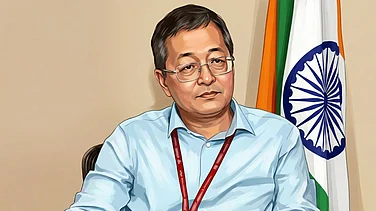
India, China to resume direct flights, trade, investment, and border trade.
Wang–Doval talks address troop pullback, boundary demarcation, and border coordination.
India raises Tibet dam concerns; China agrees to share hydrological data.
Beijing promises cooperation on fertilisers, rare earths, and tunnel machines.
India and China will be resuming their direct flights and improve their trade and investment flows as the two countries look forward to repairing ties that were damaged by a 2020 border clash.
This comes amid U.S. President Donald Trump's unpredictable foreign policy that has been staging a series of high-level bilateral visits.
According to the Indian foreign ministry, the two countries would resume direct flights and boost trade and investment, including reopening border trade at three designated points and also facilitate in visas.
Since the COVID pandemic in 2020, direct flights have been suspended and since then no date was given for their resumption.
The latest statements comes after the conclusion of Chinese Foreign Minister Wang Yi's two-day visit to New Delhi for the 24th round of talks with Indian National Security (NSA) Advisor Ajit Doval, aiming to resolve their decades old border dispute, Reuters reported.
The talks between the two countries covered issues related to pulling back troops that they have amassed on their Himalayan border, delimitation of borders as well as the boundary affairs, the Indian ministry noted.
Currently, India and Chinahave agreed to set up a working group to consult and coordinate on border affairs in order to further take ahead the demarcation negotiations, a Chinese foreign ministry statement released on Wednesday said.
The statement also mentioned that the mechanism will extend talks to cover the eastern and middle sections of the border. In the mean time, another round of talks on the western section will be held as soon as possible, the ministry said.
Beijing also stated that both countries agreed to meet again in China in 2026.
After meeting Wang, Prime Minister Narendra Modi posted on X saying, "Stable, predictable, constructive ties between India and China will contribute significantly to regional as well as global peace and prosperity," Prime Minister Narendra Modi posted on X after meeting Wang.
PM Modi is scheduled to travel to China at the end of this month to take part in the summit of the Shanghai Cooperation Organisation - his first visit to the country in more than seven years.
Talks on Tibet Dam
A statement from the Chinese foreign ministry said that Wang told Doval that "the stable and healthy development of China-India relations is in the fundamental interests of the two countries' people".
He also stated that the two sides "should enhance mutual trust through dialogues and expand cooperation" and should aim for consensus in areas such as border control and demarcation negotiations.
As per India’s Foreign Minister Jaishankar talks, he has underlined India's concerns with regard to the mega dam China is building on the Yarlung Zangbo river in Tibet.
Yarlung Zangbo becomes the Brahmaputra as it flows into India and Bangladesh, a lifeline for millions.
The dam would have implications for lower riparian states and the need for "utmost transparency" was strongly underlined, India said. In response to that, China agreed to share with India emergency hydrological information on relevant rivers on humanitarian principles, as per their foreign ministry.
Both the countries have agreed to engage an expert-level mechanism on cross-border rivers and maintain communication to renew flood reporting arrangements, the ministry said.
Earlier, Chinese officials had said hydropower projects in Tibet will not have a major impact on the environment or on downstream water supplies but India and Bangladesh have nevertheless raised concerns.
Additionally on Tuesday, an Indian source said that Wang had assured Jaishankar that Beijing was addressing three key Indian concerns - the need for fertilisers, rare earths and tunnel boring machines. The Indian foreign and mines ministries and China's commerce ministry did not immediately respond to requests for comment.



































